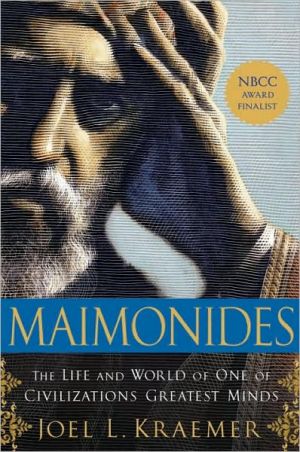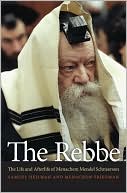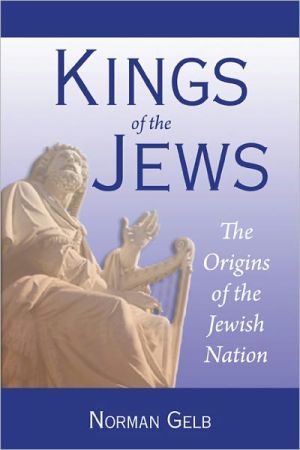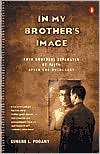Maimonides: The Life and World of One of Civilization's Greatest Minds
This authoritative biography of Moses Maimonides, one of the most influential minds in all of human history, illuminates his life as a philosopher, physician, and lawgiver. A biography on a grand scale, it brilliantly explicates one man’s life against the background of the social, religious, and political issues of his time.\ Maimonides was born in Córdoba, in Muslim-ruled Spain, in 1138 and died in Cairo in 1204. He lived in an Arab-Islamic environment from his early years in Spain and North...
Search in google:
This authoritative biography of Moses Maimonides, one of the most influential minds in all of human history, illuminates his life as a philosopher, physician, and lawgiver. A biography on a grand scale, it brilliantly explicates one man’s life against the background of the social, religious, and political issues of his time.Maimonides was born in Córdoba, in Muslim-ruled Spain, in 1138 and died in Cairo in 1204. He lived in an Arab-Islamic environment from his early years in Spain and North Africa to his later years in Egypt, where he was immersed in its culture and society. His life, career, and writings are the highest expression of the intertwined worlds of Judaism and Islam. Maimonides lived in tumultuous times, at the peak of the Reconquista in Spain and the Crusades in Palestine. His monumental compendium of Jewish law, the Mishneh Torah, became a basis of all subsequent Jewish legal codes and brought him recognition as one of the foremost lawgivers of humankind. In Egypt, his training as a physician earned him a place in the entourage of the great Sultan Saladin, and he wrote medical works in Arabic that were translated into Hebrew and Latin and studied for centuries in Europe. As a philosopher and scientist, he contributed to mathematics and astronomy, logic and ethics, politics and theology. His Guide of the Perplexed, a masterful interweaving of religious tradition and scientific and philosophic thought, influenced generations of Christian, Muslim, and Jewish thinkers.Now, in a dazzling work of scholarship, Joel Kraemer tells the complete story of Maimonides’ rich life. MAIMONIDES is at once a portrait of a great historical figure and an excursion into the Mediterranean world of the twelfth century. Joel Kraemer draws on a wealth of original sources to re-create a remarkable period in history when Jewish, Christian, and Muslim traditions clashed and mingled in a setting alive with intense intellectual exchange and religious conflict. The Barnes & Noble Review "From Moses to Moses," runs a Jewish saying, "there was none like Moses." It's a wry evasion of the relative eminence between the ancient prophet and Moses Maimonides, the 12th-century sage. Doctor, lawyer, scientist, and rabbi, he was a voluminous author but is now remembered chiefly for his Guide for the Perplexed, one of the great efforts to harmonize biblical narrative with secular philosophy. In Maimonides, Joel Kraemer labors to rescue the rest of the great man's legacy from the shadow cast by this masterpiece -- with particular emphasis on his authoritative writings on Talmudic law. Kraemer reconstructs the life and difficult times of a polymath who worked in Spain, Morocco, and Egypt at the height of Islamic cultural and political power. (The author maintains that claims for Islamic toleration of the other monotheistic faiths during this period are sometimes overstated. Even so, Maimonides' situation was clearly far preferable to that of Jews in Europe at the time.) Kraemer's diligence is never in question, but his devotion never quite turns into inspiration. The book plods. One often has the impression of note cards being typed up. The narrative is strictly chronological; the possibility that later writings might illuminate the significance of earlier ones is ruled out. The biography ends in 1204, with Maimonides' death. The last paragraph is about the possible location of his grave. This is peculiar, given what has been shown about Maimonides' own engagement with tradition -- for we know that a sage's words echo down through generations of commentary. --Scott McLemee
Introduction 1 Pt. 1 Andalusia1 Cordoba 232 Andalusian Jewish Culture 423 Early Studies 554 Early Writings 69 Pt. 2 Fez to Acre5 Refuge in Fez 836 Martyrdom or Survival 997 Did Maimonides Convert to Islam? 1168 The Beautiful Land 125 Pt. 3 Egypt: The Early Years9 Stranger in a Foreign Land 14510 Commentary on the Mishnah 16411 Saladin and the Ayyubids 18712 The Great Rav in Israel 21613 Epistle to Yemen 23314 Moses and David 243 Pt. 4 Egypt: The Middle Years15 Zuta the Wicked 26116 Communal Affairs 26917 Responsa 29318 Mishneh Torah 316 Pt. 5 Egypt: The Late Years19 The Guide of the Perplexed 35920 The Treatise on Resurrection 40721 Epistle on Astrology and Lunel Correspondence 42622 The Physician 444 Epilogue 470 Abbreviations 473 Rabbinic Texts 475 Notes 484 Index 597
\ Shaul MagidJoel L. Kraemer's extensive biography Maimonides brings this venerated rabbi and physician to life for a new generation of readers. It is the work of a scholar deeply engaged with Maimonides' ideas and the world in which he lived; the book is lucid, entertaining and incisive. While many biographies of Maimonides have been written, Kraemer does what few have attempted: He presents the great Jewish sage as deeply embedded in an Islamic cultural, religious and intellectual milieu.\ —The Washington Post\ \ \ \ \ Publishers WeeklyIn 1947, when he was 14, Kraemer started to study Maimonides. Now, the 75-year-old professor emeritus at the University of Chicago has produced his magnum opus, a definitive biography of medieval Judaism's chief intellectual sage. To prepare himself, Kraemer mastered many languages, traveled throughout the world and studied innumerable documents, including those found in the Genizah, the storeroom of Cairo's Ben Ezra synagogue. The impressive results of Kraemer's diligent research are set forth in this learned book, supported by 90 pages of footnotes. He offers a splendid analysis of Maimonides's major works: Commentary on the Mishnah; Mishneh Torah and Guide to the Perplexed(which Kraemer calls Guide of the Perplexed.) The erudite presentation includes vital information about the life of Maimonides, tracing his path from his birth in Spain to his move to Morocco, his visit to Palestine and, finally, to his settling in Egypt. Kraemer's imposing contribution is designed for his fellow scholars. General readers should turn to the more fathomable 2005 biography, Maimonides by Sherwin B. Nuland, from Nextbook/Schocken's Jewish Encounters series and just published in paper. (Oct. 28)\ Copyright © Reed Business Information, a division of Reed Elsevier Inc. All rights reserved.\ \ \ Library JournalKraemer (Jewish studies, emeritus, Univ. of Chicago; Humanism in the Renaissance of Islam) has spent 60 years studying the life and work of one of the most significant medieval philosophers, Moses Maimonides; his new book presents the results. There are several biographies of Maimonides, but this one is by far the most comprehensive and well documented. Twelfth-century Spain and northern Africa provide the chronological and geographical context for the life of this philosopher. The region was a crossroads of civilizations and religions during which Jewish, Christian, and Muslim ideas interacted in very intellectually fertile ways as Hellenic philosophy and science filtered into Spain with the help of Arabic scholars. Kraemer discusses the issue of Maimonides's conversion from Judaism to Islam, citing pro and con reports; demonstrating the close interaction at this time between Judaism and Islam. Much of the book focuses on Maimonides's publications of The Mishneh Torah and his great work, The Guide of the Perplexed. The latter book was written in Judaeo-Arabic and intended to help the well-educated scholar of religion make sense of the complex philosophical and religious world of the 12th-century Mediterranean. Trained as a physician (he gave medical care to the Sultan Saladin of Egypt), Maimonides is often also remembered for the great legal advice he gave on many moral issues of his time. Kraemer's book is a welcomed addition to the large literature on this subject and is highly recommended for all libraries.\ —James A. Overbeck\ \ \ \ \ \ The Barnes & Noble ReviewFrom Moses to Moses, runs a Jewish saying, "there was none like Moses." It's a wry evasion of the relative eminence between the ancient prophet and Moses Maimonides, the 12th-century sage. Doctor, lawyer, scientist, and rabbi, he was a voluminous author but is now remembered chiefly for his Guide for the Perplexed, one of the great efforts to harmonize biblical narrative with secular philosophy. In Maimonides, Joel Kraemer labors to rescue the rest of the great man's legacy from the shadow cast by this masterpiece -- with particular emphasis on his authoritative writings on Talmudic law. Kraemer reconstructs the life and difficult times of a polymath who worked in Spain, Morocco, and Egypt at the height of Islamic cultural and political power. (The author maintains that claims for Islamic toleration of the other monotheistic faiths during this period are sometimes overstated. Even so, Maimonides' situation was clearly far preferable to that of Jews in Europe at the time.) Kraemer's diligence is never in question, but his devotion never quite turns into inspiration. The book plods. One often has the impression of note cards being typed up. The narrative is strictly chronological; the possibility that later writings might illuminate the significance of earlier ones is ruled out. The biography ends in 1204, with Maimonides' death. The last paragraph is about the possible location of his grave. This is peculiar, given what has been shown about Maimonides' own engagement with tradition -- for we know that a sage's words echo down through generations of commentary. --Scott McLemee\ \








